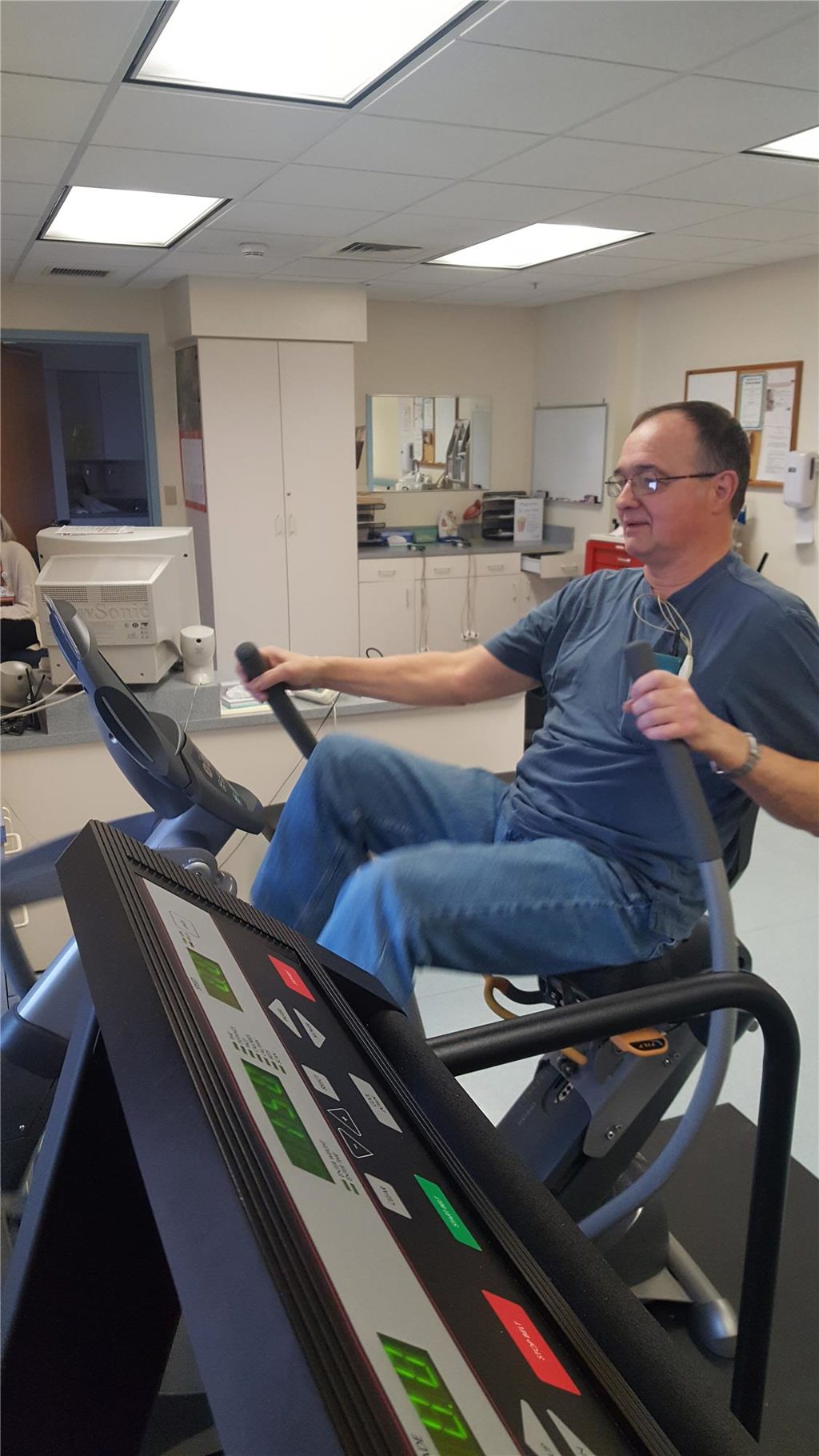
Cardiac Rehabilitation helps Clearfield Resident on the Road to Recovery
The heart is the powerhouse of the body. In an average lifetime, it beats more than two-and-a-half billion times. This great pumping machine needs to be protected and maintained. Since experiencing his first heart attack in 2014, Clearfield resident Jim Zalno has learned a thing or two about keeping his heart strong.
Sixty-three-year-old Zalno is a current participant in the Cardiac Rehabilitation program at Penn Highlands Clearfield. He initially completed the program after his first stent was placed in 2014 at the recommendation of his interventional cardiologist, Dr. Jay Ambrose, who sees patients across the Penn Highlands region.
Cardiac Rehab helped Zalno to feel stronger, so when he needed another stent this past December due to a significant coronary artery blockage, he was confident the program could help him on his road to recovery once again.
Cardiac Rehab is a comprehensive outpatient program designed to improve the cardiovascular health of individuals who have experienced heart events like a heart attack, heart failure, angioplasty or heart surgery.
According to Jason Yale, exercise physiologist at PH Clearfield, participants are closely monitored during exercise sessions three times per week. In addition to monitored exercise and strength training, Cardiac Rehab includes educational components on nutrition and heart health, which empower patients to return to an active, heart-healthy lifestyle.
There is a significant difference between cardiovascular exercise and activity, according to Yale, who is part of Zalno’s Cardiac Rehab team. While Zalno, co-owner of Zalno’s Jewelers, is an active man, all of his daily activities, including running errands, house or yard work or completing other normal tasks, don’t do much to exercise his heart.
“Although there are many health benefits to daily activities, like pushing a grocery cart or mowing the lawn, they do not increase our heart rates enough to really challenge or strengthen the heart,” Yale said. “Cardiovascular exercise, on the other hand, raises a person’s heart and breathing rates to moderate-to-vigorous intensity for 10 or more minutes.”
For Zalno, this difference was noticeable.
“Even though I’m active and on the go all the time, when you start out in Cardiac Rehab, you can get winded,” he said.
Outpatient Cardiac Rehab is offered at each of the four Penn Highlands hospitals. The goal of each program is the same: to improve the strength and efficiency of each patient’s heart, according to Crystal Stanford, RN, of the Cardiac Rehab department at Penn Highlands Brookville.
“We always say that Cardiac Rehab doesn’t change a patient’s past, but it can help improve their heart’s future,” Stanford said.
Cardiac Rehab has three equally important parts, according to Yvonne Challingsworth, RN, program director for Outpatient Cardiac Rehabilitation at Penn Highlands Elk. They are:
- Exercise counseling and training. “Exercise gets an individual’s heart pumping and their entire cardiovascular system working,” Challingsworth said. “The program teaches an individual how to get their body moving in ways that promote heart health.”
- Education for heart-healthy living. “A key element of Cardiac Rehab is education. For instance, learning how to manage risk factors by quitting smoking and making heart-healthy nutrition choices,” she said.
- Counseling to reduce stress. “Stress is harmful to your heart,” she said. “The program helps you to better identify and manage everyday sources of stress.”
It’s important to know that Cardiac Rehab is a team effort, said Bernie Adamson, RN, certified cardiac rehabilitation professional at Penn Highlands DuBois.
“Patients partner with doctors, exercise specialists, nurses, pharmacists, as well as their family and friends, to take charge of the choices, lifestyle and habits that affect their heart health,” she said.
In addition, Cardiac Rehab takes place in a group setting, which Zalno said has been enjoyable, noting participants become friends as they go through their rehabilitation journey.
Generally, patients attend Cardiac Rehab sessions for eight to 12 weeks and are encouraged to participate in maintenance exercise sessions once they’ve completed the program.
